55 start with E start with E
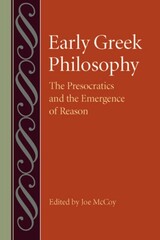

A major new edition of the so-called Presocratics.
The fragments and testimonia of the early Greek philosophers (often labeled the ‘Presocratics’) have always been not only a fundamental source for understanding archaic Greek culture and ancient philosophy but also a perennially fresh resource that has stimulated Western thought until the present day. This new systematic conception and presentation of the evidence differs in three ways from Hermann Diels’s groundbreaking work, as well as from later editions: it renders explicit the material’s thematic organization; it includes a selection from such related bodies of evidence as archaic poetry, classical drama, and the Hippocratic corpus; and it presents an overview of the reception of these thinkers until the end of antiquity.
Volume I contains introductory and reference materials essential for using all other parts of the edition.
Volume II presents preliminary chapters on ancient doxography, the cosmological and moral background, and includes the early Ionian thinkers Pherecydes, Thales, Anaximander, and Anaximenes.
Volume III includes the early Ionian thinkers Xenophanes and Heraclitus.
Volume IV presents Pythagoras and the Pythagorean School, including Hippasus, Philolaus, Eurytus, Archytas, Hicetas, and Ecphantus, along with chapters on doctrines not attributed by name and reception.
Volume V includes the western Greek thinkers Parmenides, Zeno, Melissus, Empedocles, Alcmaeon, and Hippo.
Volume Vi includes the later Ionian and Athenian thinkers Anaxagoras, Archelaus, and Diogenes of Apollonia, along with chapters on early Greek medicine and the Derveni Papyrus.
Volume VII includes the atomists Leucippus and Democritus.
Volume VIII includes the so-called sophists Protagoras, Gorgias, Prodicus, Thrasymachus, and Hippias, along with testimonia relating to the life, views, and argumentative style of Socrates.
Volume IX includes the so-called sophists Antiphon, Lycophron, and Xeniades, along with the Anonymous of Iamblichus, the Dissoi Logoi, a chapter on characterizations of the ‘sophists’ as a group, and an appendix on philosophy and philosophers in Greek drama.

A major new edition of the so-called Presocratics.
The fragments and testimonia of the early Greek philosophers (often labeled the ‘Presocratics’) have always been not only a fundamental source for understanding archaic Greek culture and ancient philosophy but also a perennially fresh resource that has stimulated Western thought until the present day. This new systematic conception and presentation of the evidence differs in three ways from Hermann Diels’s groundbreaking work, as well as from later editions: it renders explicit the material’s thematic organization; it includes a selection from such related bodies of evidence as archaic poetry, classical drama, and the Hippocratic corpus; and it presents an overview of the reception of these thinkers until the end of antiquity.
Volume I contains introductory and reference materials essential for using all other parts of the edition.
Volume II presents preliminary chapters on ancient doxography, the cosmological and moral background, and includes the early Ionian thinkers Pherecydes, Thales, Anaximander, and Anaximenes.
Volume III includes the early Ionian thinkers Xenophanes and Heraclitus.
Volume IV presents Pythagoras and the Pythagorean School, including Hippasus, Philolaus, Eurytus, Archytas, Hicetas, and Ecphantus, along with chapters on doctrines not attributed by name and reception.
Volume V includes the western Greek thinkers Parmenides, Zeno, Melissus, Empedocles, Alcmaeon, and Hippo.
Volume Vi includes the later Ionian and Athenian thinkers Anaxagoras, Archelaus, and Diogenes of Apollonia, along with chapters on early Greek medicine and the Derveni Papyrus.
Volume VII includes the atomists Leucippus and Democritus.
Volume VIII includes the so-called sophists Protagoras, Gorgias, Prodicus, Thrasymachus, and Hippias, along with testimonia relating to the life, views, and argumentative style of Socrates.
Volume IX includes the so-called sophists Antiphon, Lycophron, and Xeniades, along with the Anonymous of Iamblichus, the Dissoi Logoi, a chapter on characterizations of the ‘sophists’ as a group, and an appendix on philosophy and philosophers in Greek drama.

A major new edition of the so-called Presocratics.
The fragments and testimonia of the early Greek philosophers (often labeled the ‘Presocratics’) have always been not only a fundamental source for understanding archaic Greek culture and ancient philosophy but also a perennially fresh resource that has stimulated Western thought until the present day. This new systematic conception and presentation of the evidence differs in three ways from Hermann Diels’s groundbreaking work, as well as from later editions: it renders explicit the material’s thematic organization; it includes a selection from such related bodies of evidence as archaic poetry, classical drama, and the Hippocratic corpus; and it presents an overview of the reception of these thinkers until the end of antiquity.
Volume I contains introductory and reference materials essential for using all other parts of the edition.
Volume II presents preliminary chapters on ancient doxography, the cosmological and moral background, and includes the early Ionian thinkers Pherecydes, Thales, Anaximander, and Anaximenes.
Volume III includes the early Ionian thinkers Xenophanes and Heraclitus.
Volume IV presents Pythagoras and the Pythagorean School, including Hippasus, Philolaus, Eurytus, Archytas, Hicetas, and Ecphantus, along with chapters on doctrines not attributed by name and reception.
Volume V includes the western Greek thinkers Parmenides, Zeno, Melissus, Empedocles, Alcmaeon, and Hippo.
Volume Vi includes the later Ionian and Athenian thinkers Anaxagoras, Archelaus, and Diogenes of Apollonia, along with chapters on early Greek medicine and the Derveni Papyrus.
Volume VII includes the atomists Leucippus and Democritus.
Volume VIII includes the so-called sophists Protagoras, Gorgias, Prodicus, Thrasymachus, and Hippias, along with testimonia relating to the life, views, and argumentative style of Socrates.
Volume IX includes the so-called sophists Antiphon, Lycophron, and Xeniades, along with the Anonymous of Iamblichus, the Dissoi Logoi, a chapter on characterizations of the ‘sophists’ as a group, and an appendix on philosophy and philosophers in Greek drama.

A major new edition of the so-called Presocratics.
The fragments and testimonia of the early Greek philosophers (often labeled the ‘Presocratics’) have always been not only a fundamental source for understanding archaic Greek culture and ancient philosophy but also a perennially fresh resource that has stimulated Western thought until the present day. This new systematic conception and presentation of the evidence differs in three ways from Hermann Diels’s groundbreaking work, as well as from later editions: it renders explicit the material’s thematic organization; it includes a selection from such related bodies of evidence as archaic poetry, classical drama, and the Hippocratic corpus; and it presents an overview of the reception of these thinkers until the end of antiquity.
Volume I contains introductory and reference materials essential for using all other parts of the edition.
Volume II presents preliminary chapters on ancient doxography, the cosmological and moral background, and includes the early Ionian thinkers Pherecydes, Thales, Anaximander, and Anaximenes.
Volume III includes the early Ionian thinkers Xenophanes and Heraclitus.
Volume IV presents Pythagoras and the Pythagorean School, including Hippasus, Philolaus, Eurytus, Archytas, Hicetas, and Ecphantus, along with chapters on doctrines not attributed by name and reception.
Volume V includes the western Greek thinkers Parmenides, Zeno, Melissus, Empedocles, Alcmaeon, and Hippo.
Volume Vi includes the later Ionian and Athenian thinkers Anaxagoras, Archelaus, and Diogenes of Apollonia, along with chapters on early Greek medicine and the Derveni Papyrus.
Volume VII includes the atomists Leucippus and Democritus.
Volume VIII includes the so-called sophists Protagoras, Gorgias, Prodicus, Thrasymachus, and Hippias, along with testimonia relating to the life, views, and argumentative style of Socrates.
Volume IX includes the so-called sophists Antiphon, Lycophron, and Xeniades, along with the Anonymous of Iamblichus, the Dissoi Logoi, a chapter on characterizations of the ‘sophists’ as a group, and an appendix on philosophy and philosophers in Greek drama.

A major new edition of the so-called Presocratics.
The fragments and testimonia of the early Greek philosophers (often labeled the ‘Presocratics’) have always been not only a fundamental source for understanding archaic Greek culture and ancient philosophy but also a perennially fresh resource that has stimulated Western thought until the present day. This new systematic conception and presentation of the evidence differs in three ways from Hermann Diels’s groundbreaking work, as well as from later editions: it renders explicit the material’s thematic organization; it includes a selection from such related bodies of evidence as archaic poetry, classical drama, and the Hippocratic corpus; and it presents an overview of the reception of these thinkers until the end of antiquity.
Volume I contains introductory and reference materials essential for using all other parts of the edition.
Volume II presents preliminary chapters on ancient doxography, the cosmological and moral background, and includes the early Ionian thinkers Pherecydes, Thales, Anaximander, and Anaximenes.
Volume III includes the early Ionian thinkers Xenophanes and Heraclitus.
Volume IV presents Pythagoras and the Pythagorean School, including Hippasus, Philolaus, Eurytus, Archytas, Hicetas, and Ecphantus, along with chapters on doctrines not attributed by name and reception.
Volume V includes the western Greek thinkers Parmenides, Zeno, Melissus, Empedocles, Alcmaeon, and Hippo.
Volume Vi includes the later Ionian and Athenian thinkers Anaxagoras, Archelaus, and Diogenes of Apollonia, along with chapters on early Greek medicine and the Derveni Papyrus.
Volume VII includes the atomists Leucippus and Democritus.
Volume VIII includes the so-called sophists Protagoras, Gorgias, Prodicus, Thrasymachus, and Hippias, along with testimonia relating to the life, views, and argumentative style of Socrates.
Volume IX includes the so-called sophists Antiphon, Lycophron, and Xeniades, along with the Anonymous of Iamblichus, the Dissoi Logoi, a chapter on characterizations of the ‘sophists’ as a group, and an appendix on philosophy and philosophers in Greek drama.

A major new edition of the so-called Presocratics.
The fragments and testimonia of the early Greek philosophers (often labeled the ‘Presocratics’) have always been not only a fundamental source for understanding archaic Greek culture and ancient philosophy but also a perennially fresh resource that has stimulated Western thought until the present day. This new systematic conception and presentation of the evidence differs in three ways from Hermann Diels’s groundbreaking work, as well as from later editions: it renders explicit the material’s thematic organization; it includes a selection from such related bodies of evidence as archaic poetry, classical drama, and the Hippocratic corpus; and it presents an overview of the reception of these thinkers until the end of antiquity.
Volume I contains introductory and reference materials essential for using all other parts of the edition.
Volume II presents preliminary chapters on ancient doxography, the cosmological and moral background, and includes the early Ionian thinkers Pherecydes, Thales, Anaximander, and Anaximenes.
Volume III includes the early Ionian thinkers Xenophanes and Heraclitus.
Volume IV presents Pythagoras and the Pythagorean School, including Hippasus, Philolaus, Eurytus, Archytas, Hicetas, and Ecphantus, along with chapters on doctrines not attributed by name and reception.
Volume V includes the western Greek thinkers Parmenides, Zeno, Melissus, Empedocles, Alcmaeon, and Hippo.
Volume Vi includes the later Ionian and Athenian thinkers Anaxagoras, Archelaus, and Diogenes of Apollonia, along with chapters on early Greek medicine and the Derveni Papyrus.
Volume VII includes the atomists Leucippus and Democritus.
Volume VIII includes the so-called sophists Protagoras, Gorgias, Prodicus, Thrasymachus, and Hippias, along with testimonia relating to the life, views, and argumentative style of Socrates.
Volume IX includes the so-called sophists Antiphon, Lycophron, and Xeniades, along with the Anonymous of Iamblichus, the Dissoi Logoi, a chapter on characterizations of the ‘sophists’ as a group, and an appendix on philosophy and philosophers in Greek drama.

A major new edition of the so-called Presocratics.
The fragments and testimonia of the early Greek philosophers (often labeled the ‘Presocratics’) have always been not only a fundamental source for understanding archaic Greek culture and ancient philosophy but also a perennially fresh resource that has stimulated Western thought until the present day. This new systematic conception and presentation of the evidence differs in three ways from Hermann Diels’s groundbreaking work, as well as from later editions: it renders explicit the material’s thematic organization; it includes a selection from such related bodies of evidence as archaic poetry, classical drama, and the Hippocratic corpus; and it presents an overview of the reception of these thinkers until the end of antiquity.
Volume I contains introductory and reference materials essential for using all other parts of the edition.
Volume II presents preliminary chapters on ancient doxography, the cosmological and moral background, and includes the early Ionian thinkers Pherecydes, Thales, Anaximander, and Anaximenes.
Volume III includes the early Ionian thinkers Xenophanes and Heraclitus.
Volume IV presents Pythagoras and the Pythagorean School, including Hippasus, Philolaus, Eurytus, Archytas, Hicetas, and Ecphantus, along with chapters on doctrines not attributed by name and reception.
Volume V includes the western Greek thinkers Parmenides, Zeno, Melissus, Empedocles, Alcmaeon, and Hippo.
Volume Vi includes the later Ionian and Athenian thinkers Anaxagoras, Archelaus, and Diogenes of Apollonia, along with chapters on early Greek medicine and the Derveni Papyrus.
Volume VII includes the atomists Leucippus and Democritus.
Volume VIII includes the so-called sophists Protagoras, Gorgias, Prodicus, Thrasymachus, and Hippias, along with testimonia relating to the life, views, and argumentative style of Socrates.
Volume IX includes the so-called sophists Antiphon, Lycophron, and Xeniades, along with the Anonymous of Iamblichus, the Dissoi Logoi, a chapter on characterizations of the ‘sophists’ as a group, and an appendix on philosophy and philosophers in Greek drama.

A major new edition of the so-called Presocratics.
The fragments and testimonia of the early Greek philosophers (often labeled the ‘Presocratics’) have always been not only a fundamental source for understanding archaic Greek culture and ancient philosophy but also a perennially fresh resource that has stimulated Western thought until the present day. This new systematic conception and presentation of the evidence differs in three ways from Hermann Diels’s groundbreaking work, as well as from later editions: it renders explicit the material’s thematic organization; it includes a selection from such related bodies of evidence as archaic poetry, classical drama, and the Hippocratic corpus; and it presents an overview of the reception of these thinkers until the end of antiquity.
Volume I contains introductory and reference materials essential for using all other parts of the edition.
Volume II presents preliminary chapters on ancient doxography, the cosmological and moral background, and includes the early Ionian thinkers Pherecydes, Thales, Anaximander, and Anaximenes.
Volume III includes the early Ionian thinkers Xenophanes and Heraclitus.
Volume IV presents Pythagoras and the Pythagorean School, including Hippasus, Philolaus, Eurytus, Archytas, Hicetas, and Ecphantus, along with chapters on doctrines not attributed by name and reception.
Volume V includes the western Greek thinkers Parmenides, Zeno, Melissus, Empedocles, Alcmaeon, and Hippo.
Volume Vi includes the later Ionian and Athenian thinkers Anaxagoras, Archelaus, and Diogenes of Apollonia, along with chapters on early Greek medicine and the Derveni Papyrus.
Volume VII includes the atomists Leucippus and Democritus.
Volume VIII includes the so-called sophists Protagoras, Gorgias, Prodicus, Thrasymachus, and Hippias, along with testimonia relating to the life, views, and argumentative style of Socrates.
Volume IX includes the so-called sophists Antiphon, Lycophron, and Xeniades, along with the Anonymous of Iamblichus, the Dissoi Logoi, a chapter on characterizations of the ‘sophists’ as a group, and an appendix on philosophy and philosophers in Greek drama.

A major new edition of the so-called Presocratics.
The fragments and testimonia of the early Greek philosophers (often labeled the ‘Presocratics’) have always been not only a fundamental source for understanding archaic Greek culture and ancient philosophy but also a perennially fresh resource that has stimulated Western thought until the present day. This new systematic conception and presentation of the evidence differs in three ways from Hermann Diels’s groundbreaking work, as well as from later editions: it renders explicit the material’s thematic organization; it includes a selection from such related bodies of evidence as archaic poetry, classical drama, and the Hippocratic corpus; and it presents an overview of the reception of these thinkers until the end of antiquity.
Volume I contains introductory and reference materials essential for using all other parts of the edition.
Volume II presents preliminary chapters on ancient doxography, the cosmological and moral background, and includes the early Ionian thinkers Pherecydes, Thales, Anaximander, and Anaximenes.
Volume III includes the early Ionian thinkers Xenophanes and Heraclitus.
Volume IV presents Pythagoras and the Pythagorean School, including Hippasus, Philolaus, Eurytus, Archytas, Hicetas, and Ecphantus, along with chapters on doctrines not attributed by name and reception.
Volume V includes the western Greek thinkers Parmenides, Zeno, Melissus, Empedocles, Alcmaeon, and Hippo.
Volume Vi includes the later Ionian and Athenian thinkers Anaxagoras, Archelaus, and Diogenes of Apollonia, along with chapters on early Greek medicine and the Derveni Papyrus.
Volume VII includes the atomists Leucippus and Democritus.
Volume VIII includes the so-called sophists Protagoras, Gorgias, Prodicus, Thrasymachus, and Hippias, along with testimonia relating to the life, views, and argumentative style of Socrates.
Volume IX includes the so-called sophists Antiphon, Lycophron, and Xeniades, along with the Anonymous of Iamblichus, the Dissoi Logoi, a chapter on characterizations of the ‘sophists’ as a group, and an appendix on philosophy and philosophers in Greek drama.
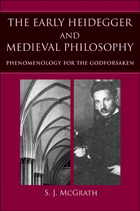

Essays by noted cultural and literary theorists join with Bové’s contemporary preface to represent the important and unique moment in recent intellectual history when postmodernism was no longer seen primarily as an architectural term, had not yet come to describe the wide range of culture it does now, but was finding power and place in the literary realm. These essays show that the history of postmodernism and its attendant critical theories are both more complex and more deeply bound with literary criticism than often is acknowledged today. Early Postmodernism demonstrates not only the significance of these literary studies, but also the role played by literary critical postmodernism in making possible newer forms of critical and cultural studies.
Contributors. Barry Alpert, Charles Altieri, David Antin, Harold Bloom, Paul A. Bové, Hélène Cixous, Gerald Gillespie, Ihab Hassan, Joseph N. Riddel, William, V. Spanos, Catharine R. Stimpson, Cornel West
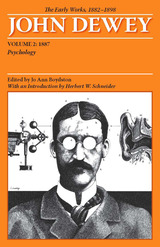
Psychology, John Dewey’s first book, is an appropriate choice for the first volume in the Southern Illinois University series “The Early Works of John Dewey, 1882–1898.” With an original publication date of 1887, Psychology is volume 2 of “The Early Works.” It appears first in the series to introduce scholars and general readers to the use of modern textual criticism in a work outside the literary field. Designed as a scholar’s reading edition, the volume presents the text of Dewey’s work as the author intended, clear of editorial footnotes. All apparatus is conveniently arranged in appendix form. As evidence of its wide adoption and use as a college textbook, Psychology had a publishing history of twenty-six printings. For two of the reprintings, Dewey made extensive revisions in content to incorporate developments in the field of psychology as well as in his own thinking. The textual appendices include a thorough tabulation of these changes.
In recognition of the high quality and scholarly standards of the textual criticism, this edition of Psychology is the first nonliterary work awarded the Seal of the Modern Language Association Center for Editions of American Authors. By applying to the work of a philosopher the procedures used in modern textual editions of American writers such as Hawthorne, the Southern Illinois University Dewey project is establishing a pattern for future collected writing of philosophers.
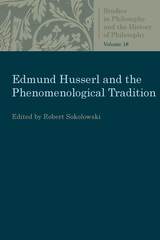
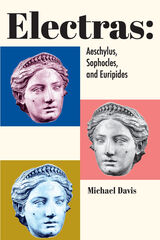
Davis accomplishes much more than an exegetical bridge as he connects us with ancient memory and wisdom. "When we cannot resist the temptation to recoil morally from their terminology, we risk the tragedy of losing their profound thoughts about our humanity––their philosophical anthropology." Davis has remarkably made of a niche study a stunning source material for more universal questions. This is a book that is as timely as it is ageless.
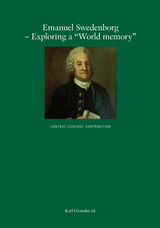
The conference attracted presenters from all over the world, including some top scholars. Papers were divided into three categories. “Content” describes Swedenborg’s thought, from his use of spheres in his scientific writings to his views on sexuality and marriage to analyses of his theological writings. “Context” explores his times, putting Swedenborg in the context of eighteenth-century philosophy and looking at the organization of the earliest Swedenborgian church. “Contribution” looks at Swedenborg’s influence on philosophy and the arts, from Ralph Waldo Emerson and Czeslaw Milocz to Elizabeth Barrett Browning and William James.
These papers present a rare insight into Swedenborg. Although only a limited number of attendees were invited to the conference, now the research is available to all.
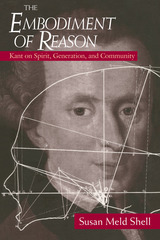
Shell argues that the central animating issues of Kant's lifework concerned the perplexing relation of spirit to body. Through an exacting analysis of individual writings, Shell maps the philosophical contours of Kant's early intellectual struggles and their relation to his more mature thought. The paradox of mind in matter and the tensions it generates—between freedom and determinacy, independence and community, ideal and real—are shown to inform the whole of his work. Shell's fresh, penetrating analysis of the precritical works will surely catapult them to new prominence in Kant studies.
Shell's critique goes further to consider the context of contemporary intellectual life. She explores the fascinating realm of Kant's sexual and medical idiosyncracies, linking them to the primary concerns of his critical philosophy. She develops a sure-to-be controversial treatment of the connection between Kant's philosophy and his chronic hypochondria, and illuminates previously unforeseen connections in a remarkable convergence of life and thought, with important theoretical and practical implications for modern times.
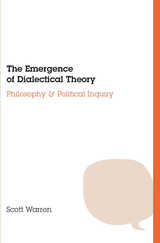
Scott Warren’s ambitious and enduring work sets out to resolve the ongoing identity crisis of contemporary political inquiry. In the Emergence of Dialectical Theory, Warren begins with a careful analysis of the philosophical foundations of dialectical theory in the thought of Kant, Hegel, and Marx. He then examines how the dialectic functions in the major twentieth-century philosophical movements of existentialism, phenomenology, neomarxism, and critical theory. Numerous major and minor philosophers are discussed, but the emphasis falls on two of the greatest dialectical thinkers of the previous century: Maurice Merleau-Ponty and Jürgen Habermas.
Warren’s shrewd critique is indispensable to those interested in the history of social and political thought and the philosophical foundations of political theory. His work offers an alternative for those who find postmodernism to be at a philosophical impasse.

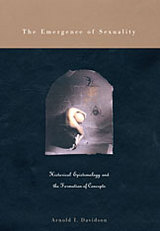
In a book that moves between philosophy and history, and with lasting significance for both, Arnold Davidson elaborates a powerful new method for considering the history of concepts and the nature of scientific knowledge, a method he calls "historical epistemology." He applies this method to the history of sexuality, with important consequences for our understanding of desire, abnormality, and sexuality itself.
In Davidson's view, it was the emergence of a science of sexuality that made it possible, even inevitable, for us to become preoccupied with our true sexuality. Historical epistemology attempts to reveal how this new form of experience that we call "sexuality" is linked to the emergence of new structures of knowledge, and especially to a new style of reasoning and the concepts employed within it. Thus Davidson shows how, starting in the second half of the nineteenth century, a new psychiatric style of reasoning about diseases emerges that makes possible, among other things, statements about sexual perversion that quickly become commonplace in discussions of sexuality.
Considering a wide range of examples, from Thomas Aquinas to Freud, Davidson develops the methodological lessons of Georges Canguilhem and Michel Foucault in order to analyze the history of our experience of normativity and its deviations.
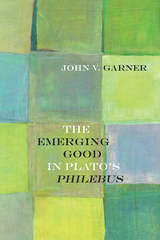
John V. Garner convincingly refines previous interpretations and uncovers a profound thesis in the Philebus: genuine learners find value not only in stable being but also in the process of becoming. Further, since genuine learning arises in pluralistic communities where people form and inform one another, those who are truly open to learning are precisely those who actively shape the betterment of humanity.
The Emerging Good in Plato’s "Philebus" thus connects the Philebus’s grand philosophical ideas about the order of values, on the one hand, to its intimate and personal account of the experience of learning, on the other. It shows that this dialogue, while agreeing broadly with themes in more widely studied works by Plato such as the Republic, Gorgias, and Phaedo, also develops a unique way of salvaging the whole of human life, including our ever-changing nature.

From Kant to Kierkegaard, from Hegel to Heidegger, continental philosophers have indelibly shaped the trajectory of Western thought since the eighteenth century. Although much has been written about these monumental thinkers, students and scholars lack a definitive guide to the entire scope of the continental tradition. The most comprehensive reference work to date, this eight-volume History of Continental Philosophy will both encapsulate the subject and reorient our understanding of it. Beginning with an overview of Kant’s philosophy and its initial reception, the History traces the evolution of continental philosophy through major figures as well as movements such as existentialism, phenomenology, hermeneutics, and poststructuralism. The final volume outlines the current state of the field, bringing the work of both historical and modern thinkers to bear on such contemporary topics as feminism, globalization, and the environment. Throughout, the volumes examine important philosophical figures and developments in their historical, political, and cultural contexts.
The first reference of its kind, A History of Continental Philosophy has been written and edited by internationally recognized experts with a commitment to explaining complex thinkers, texts, and movements in rigorous yet jargon-free essays suitable for both undergraduates and seasoned specialists. These volumes also elucidate ongoing debates about the nature of continental and analytic philosophy, surveying the distinctive, sometimes overlapping characteristics and approaches of each tradition. Featuring helpful overviews of major topics and plotting road maps to their underlying contexts, A History of Continental Philosophy is destined to be the resource of first and last resort for students and scholars alike.
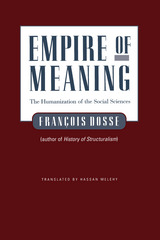
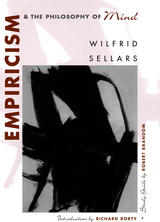
The most important work by one of America's greatest twentieth-century philosophers, Empiricism and the Philosophy of Mind is both the epitome of Wilfrid Sellars' entire philosophical system and a key document in the history of philosophy. First published in essay form in 1956, it helped bring about a sea change in analytic philosophy. It broke the link, which had bound Russell and Ayer to Locke and Hume--the doctrine of "knowledge by acquaintance." Sellars' attack on the Myth of the Given in Empiricism and the Philosophy of Mind was a decisive move in turning analytic philosophy away from the foundationalist motives of the logical empiricists and raised doubts about the very idea of "epistemology."
With an introduction by Richard Rorty to situate the work within the history of recent philosophy, and with a study guide by Robert Brandom, this publication of Empiricism and the Philosophy of Mind makes a difficult but indisputably significant figure in the development of analytic philosophy clear and comprehensible to anyone who would understand that philosophy or its history.
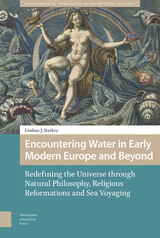
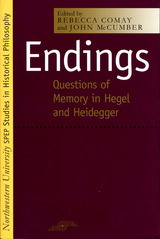
Beginning at the point where Heidegger encountered Hegel, this volume of provocative essays addresses the respective philosophies of the two men. Leading scholars provide a variety of models from which to view the unique relationship between the bodies of thought of Heidegger and Hegel: bodies of thought that cannot be taken as two objects to be compared, contrasted, and finally evaluated but that must be viewed in dynamic terms, as a relationship in which self-transformations lead to mutual transformations and vice versa.
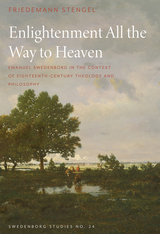
By broadening the conversation surrounding Swedenborg’s source and reception histories, Stengel hopes to counter the reductive lenses through which certain of Swedenborg’s experiences have been filtered. In the author’s own words, “this will serve to highlight the perspectives contained within the historical discourse, tracing their seminal influence on later religious and philosophical discussions that, in turn, gave rise, from the eighteenth century onward, to the psychohistorical interpretations of associated supernatural phenomena such as Swedenborg’s visionary propensity.”
Enlightenment All the Way to Heaven is the twenty-fourth installment in the Swedenborg Studies scholarly series.

Plato’s most influential disciple and proponent.
Plotinus (AD 204/5–270), possibly of Roman descent, but certainly a Greek in education and environment, was the first and greatest of Neoplatonic philosophers. Practically nothing is known of his early life, but at the age of 28 he went to Alexandria, and studied philosophy with Ammonius “Saccas” for eleven years. Wishing to learn the philosophy of the Persians and Indians, he joined the expedition of Gordian III against the Persians in 243, not without subsequent danger. Aged 40 he settled in Rome and taught philosophy there till shortly before his death. In 253 he began to write, and continued to do so till the last year of his life. His writings were edited by his disciple Porphyry, who published them many years after his master’s death in six sets of nine treatises each (the Enneads).
Plotinus regarded Plato as his master, and his own philosophy is a profoundly original development of the Platonism of the first two centuries of the Christian era and the closely related thought of the Neopythagoreans, with some influences from Aristotle and his followers and the Stoics, whose writings he knew well but used critically. There is no real trace of Oriental influence on his thought, and he was passionately opposed to Gnosticism. He is a unique combination of mystic and Hellenic rationalist. His thought dominated later Greek philosophy and influenced both Christians and Muslims, and is still alive today because of its union of rationality and intense religious experience.
The Loeb Classical Library edition of Plotinus is in seven volumes.

Plato’s most influential disciple and proponent.
Plotinus (AD 204/5–270), possibly of Roman descent, but certainly a Greek in education and environment, was the first and greatest of Neoplatonic philosophers. Practically nothing is known of his early life, but at the age of 28 he went to Alexandria, and studied philosophy with Ammonius “Saccas” for eleven years. Wishing to learn the philosophy of the Persians and Indians, he joined the expedition of Gordian III against the Persians in 243, not without subsequent danger. Aged 40 he settled in Rome and taught philosophy there till shortly before his death. In 253 he began to write, and continued to do so till the last year of his life. His writings were edited by his disciple Porphyry, who published them many years after his master’s death in six sets of nine treatises each (the Enneads).
Plotinus regarded Plato as his master, and his own philosophy is a profoundly original development of the Platonism of the first two centuries of the Christian era and the closely related thought of the Neopythagoreans, with some influences from Aristotle and his followers and the Stoics, whose writings he knew well but used critically. There is no real trace of Oriental influence on his thought, and he was passionately opposed to Gnosticism. He is a unique combination of mystic and Hellenic rationalist. His thought dominated later Greek philosophy and influenced both Christians and Muslims, and is still alive today because of its union of rationality and intense religious experience.
The Loeb Classical Library edition of Plotinus is in seven volumes.

Plato’s most influential disciple and proponent.
Plotinus (AD 204/5–270), possibly of Roman descent, but certainly a Greek in education and environment, was the first and greatest of Neoplatonic philosophers. Practically nothing is known of his early life, but at the age of 28 he went to Alexandria, and studied philosophy with Ammonius “Saccas” for eleven years. Wishing to learn the philosophy of the Persians and Indians, he joined the expedition of Gordian III against the Persians in 243, not without subsequent danger. Aged 40 he settled in Rome and taught philosophy there till shortly before his death. In 253 he began to write, and continued to do so till the last year of his life. His writings were edited by his disciple Porphyry, who published them many years after his master’s death in six sets of nine treatises each (the Enneads).
Plotinus regarded Plato as his master, and his own philosophy is a profoundly original development of the Platonism of the first two centuries of the Christian era and the closely related thought of the Neopythagoreans, with some influences from Aristotle and his followers and the Stoics, whose writings he knew well but used critically. There is no real trace of Oriental influence on his thought, and he was passionately opposed to Gnosticism. He is a unique combination of mystic and Hellenic rationalist. His thought dominated later Greek philosophy and influenced both Christians and Muslims, and is still alive today because of its union of rationality and intense religious experience.
The Loeb Classical Library edition of Plotinus is in seven volumes.

Plato’s most influential disciple and proponent.
Plotinus (AD 204/5–270), possibly of Roman descent, but certainly a Greek in education and environment, was the first and greatest of Neoplatonic philosophers. Practically nothing is known of his early life, but at the age of 28 he went to Alexandria, and studied philosophy with Ammonius “Saccas” for eleven years. Wishing to learn the philosophy of the Persians and Indians, he joined the expedition of Gordian III against the Persians in 243, not without subsequent danger. Aged 40 he settled in Rome and taught philosophy there till shortly before his death. In 253 he began to write, and continued to do so till the last year of his life. His writings were edited by his disciple Porphyry, who published them many years after his master’s death in six sets of nine treatises each (the Enneads).
Plotinus regarded Plato as his master, and his own philosophy is a profoundly original development of the Platonism of the first two centuries of the Christian era and the closely related thought of the Neopythagoreans, with some influences from Aristotle and his followers and the Stoics, whose writings he knew well but used critically. There is no real trace of Oriental influence on his thought, and he was passionately opposed to Gnosticism. He is a unique combination of mystic and Hellenic rationalist. His thought dominated later Greek philosophy and influenced both Christians and Muslims, and is still alive today because of its union of rationality and intense religious experience.
The Loeb Classical Library edition of Plotinus is in seven volumes.

Plato’s most influential disciple and proponent.
Plotinus (AD 204/5–270), possibly of Roman descent, but certainly a Greek in education and environment, was the first and greatest of Neoplatonic philosophers. Practically nothing is known of his early life, but at the age of 28 he went to Alexandria, and studied philosophy with Ammonius “Saccas” for eleven years. Wishing to learn the philosophy of the Persians and Indians, he joined the expedition of Gordian III against the Persians in 243, not without subsequent danger. Aged 40 he settled in Rome and taught philosophy there till shortly before his death. In 253 he began to write, and continued to do so till the last year of his life. His writings were edited by his disciple Porphyry, who published them many years after his master’s death in six sets of nine treatises each (the Enneads).
Plotinus regarded Plato as his master, and his own philosophy is a profoundly original development of the Platonism of the first two centuries of the Christian era and the closely related thought of the Neopythagoreans, with some influences from Aristotle and his followers and the Stoics, whose writings he knew well but used critically. There is no real trace of Oriental influence on his thought, and he was passionately opposed to Gnosticism. He is a unique combination of mystic and Hellenic rationalist. His thought dominated later Greek philosophy and influenced both Christians and Muslims, and is still alive today because of its union of rationality and intense religious experience.
The Loeb Classical Library edition of Plotinus is in seven volumes.

Plato’s most influential disciple and proponent.
Plotinus (AD 204/5–270), possibly of Roman descent, but certainly a Greek in education and environment, was the first and greatest of Neoplatonic philosophers. Practically nothing is known of his early life, but at the age of 28 he went to Alexandria, and studied philosophy with Ammonius “Saccas” for eleven years. Wishing to learn the philosophy of the Persians and Indians, he joined the expedition of Gordian III against the Persians in 243, not without subsequent danger. Aged 40 he settled in Rome and taught philosophy there till shortly before his death. In 253 he began to write, and continued to do so till the last year of his life. His writings were edited by his disciple Porphyry, who published them many years after his master’s death in six sets of nine treatises each (the Enneads).
Plotinus regarded Plato as his master, and his own philosophy is a profoundly original development of the Platonism of the first two centuries of the Christian era and the closely related thought of the Neopythagoreans, with some influences from Aristotle and his followers and the Stoics, whose writings he knew well but used critically. There is no real trace of Oriental influence on his thought, and he was passionately opposed to Gnosticism. He is a unique combination of mystic and Hellenic rationalist. His thought dominated later Greek philosophy and influenced both Christians and Muslims, and is still alive today because of its union of rationality and intense religious experience.
The Loeb Classical Library edition of Plotinus is in seven volumes.

The first fruits of Greek botany.
Theophrastus of Eresus in Lesbos, born about 370 BC, is the author of the most important botanical works that have survived from classical antiquity. He was in turn student, collaborator, and successor of Aristotle. Like his predecessor he was interested in all aspects of human knowledge and experience, especially natural science. His writings on plants form a counterpart to Aristotle’s zoological works.
In the Enquiry into Plants Theophrastus classifies and describes varieties—covering trees, plants of particular regions, shrubs, herbaceous plants, and cereals; in the last of the nine books he focuses on plant juices and medicinal properties of herbs. This edition is in two volumes; the second contains two additional treatises, On Odours and Weather Signs.
In De causis plantarum Theophrastus turns to plant physiology. Books 1 and 2 are concerned with generation, sprouting, flowering and fruiting, and the effects of climate. In Books 3 and 4 Theophrastus studies cultivation and agricultural methods. In Books 5 and 6 he discusses plant breeding; diseases and other causes of death; and distinctive flavors and odors. The Loeb Classical Library edition is in three volumes.
Theophrastus’ celebrated Characters is of a quite different nature. This collection of descriptive sketches is the earliest known character-writing and a striking reflection of contemporary life.

The first fruits of Greek botany.
Theophrastus of Eresus in Lesbos, born about 370 BC, is the author of the most important botanical works that have survived from classical antiquity. He was in turn student, collaborator, and successor of Aristotle. Like his predecessor he was interested in all aspects of human knowledge and experience, especially natural science. His writings on plants form a counterpart to Aristotle’s zoological works.
In the Enquiry into Plants Theophrastus classifies and describes varieties—covering trees, plants of particular regions, shrubs, herbaceous plants, and cereals; in the last of the nine books he focuses on plant juices and medicinal properties of herbs. This edition is in two volumes; the second contains two additional treatises, On Odours and Weather Signs.
In De causis plantarum Theophrastus turns to plant physiology. Books 1 and 2 are concerned with generation, sprouting, flowering and fruiting, and the effects of climate. In Books 3 and 4 Theophrastus studies cultivation and agricultural methods. In Books 5 and 6 he discusses plant breeding; diseases and other causes of death; and distinctive flavors and odors. The Loeb Classical Library edition is in three volumes.
Theophrastus’ celebrated Characters is of a quite different nature. This collection of descriptive sketches is the earliest known character-writing and a striking reflection of contemporary life.


Meditative missives.
Seneca, Lucius Annaeus, born at Corduba (Cordova) ca. 4 BC, of a prominent and wealthy family, spent an ailing childhood and youth at Rome in an aunt’s care. He became famous in rhetoric, philosophy, money-making, and imperial service. After some disgrace during Claudius’ reign he became tutor and then, in AD 54, advising minister to Nero, some of whose worst misdeeds he did not prevent. Involved (innocently?) in a conspiracy, he killed himself by order in 65. Wealthy, he preached indifference to wealth; evader of pain and death, he preached scorn of both; and there were other contrasts between practice and principle.
We have Seneca’s philosophical or moral essays (ten of them traditionally called Dialogues)—on providence, steadfastness, the happy life, anger, leisure, tranquility, the brevity of life, gift-giving, forgiveness—and treatises on natural phenomena. Also extant are 124 epistles, in which he writes in a relaxed style about moral and ethical questions, relating them to personal experiences; a skit on the official deification of Claudius, Apocolocyntosis (in LCL 15); and nine rhetorical tragedies on ancient Greek themes. Many epistles and all his speeches are lost.
The 124 epistles are collected in Volumes IV–VI of the Loeb Classical Library’s ten-volume edition of Seneca.

Meditative missives.
Seneca, Lucius Annaeus, born at Corduba (Cordova) ca. 4 BC, of a prominent and wealthy family, spent an ailing childhood and youth at Rome in an aunt’s care. He became famous in rhetoric, philosophy, money-making, and imperial service. After some disgrace during Claudius’ reign he became tutor and then, in AD 54, advising minister to Nero, some of whose worst misdeeds he did not prevent. Involved (innocently?) in a conspiracy, he killed himself by order in 65. Wealthy, he preached indifference to wealth; evader of pain and death, he preached scorn of both; and there were other contrasts between practice and principle.
We have Seneca’s philosophical or moral essays (ten of them traditionally called Dialogues)—on providence, steadfastness, the happy life, anger, leisure, tranquility, the brevity of life, gift-giving, forgiveness—and treatises on natural phenomena. Also extant are 124 epistles, in which he writes in a relaxed style about moral and ethical questions, relating them to personal experiences; a skit on the official deification of Claudius, Apocolocyntosis (in LCL 15); and nine rhetorical tragedies on ancient Greek themes. Many epistles and all his speeches are lost.
The 124 epistles are collected in Volumes IV–VI of the Loeb Classical Library’s ten-volume edition of Seneca.

Meditative missives.
Seneca, Lucius Annaeus, born at Corduba (Cordova) ca. 4 BC, of a prominent and wealthy family, spent an ailing childhood and youth at Rome in an aunt’s care. He became famous in rhetoric, philosophy, money-making, and imperial service. After some disgrace during Claudius’ reign he became tutor and then, in AD 54, advising minister to Nero, some of whose worst misdeeds he did not prevent. Involved (innocently?) in a conspiracy, he killed himself by order in 65. Wealthy, he preached indifference to wealth; evader of pain and death, he preached scorn of both; and there were other contrasts between practice and principle.
We have Seneca’s philosophical or moral essays (ten of them traditionally called Dialogues)—on providence, steadfastness, the happy life, anger, leisure, tranquility, the brevity of life, gift-giving, forgiveness—and treatises on natural phenomena. Also extant are 124 epistles, in which he writes in a relaxed style about moral and ethical questions, relating them to personal experiences; a skit on the official deification of Claudius, Apocolocyntosis (in LCL 15); and nine rhetorical tragedies on ancient Greek themes. Many epistles and all his speeches are lost.
The 124 epistles are collected in Volumes IV–VI of the Loeb Classical Library’s ten-volume edition of Seneca.
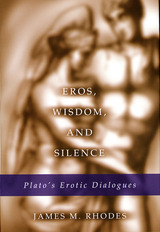
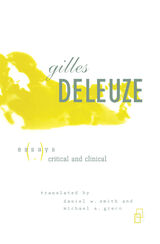
The final work of this essential thinker.
Essays Critical and Clinical is the final work of the late Gilles Deleuze, one of the most important and vital figures in contemporary philosophy. It includes essays, all newly revised or published here for the first time, on such diverse literary figures as Herman Melville, Walt Whitman, D. H. Lawrence, T. E. Lawrence, Samuel Beckett, Leopold von Sacher-Masoch, Alfred Jarry, and Lewis Carroll, as well as philosophers such as Plato, Spinoza, Kant, Nietzsche, and Heidegger.
For Deleuze, every literary work implies a way of living, a form of life, and must be evaluated not only critically but also clinically. As Proust said, great writers invent a new language within language, but in such a way that language in its entirety is pushed to its limit or its own “outside.” This outside of language is made up of affects and precepts that are not linguistic, but which language alone nonetheless makes possible. In Essays Critical and Clinical, Deleuze is concerned with the delirium-the process of Life-that lies behind this invention, as well as the loss that occurs, the silence that follows, when this delirium becomes a clinical state. Taken together, these eighteen essays present a profoundly new approach to literature by one of the greatest twentieth-century philosophers.

G. E. M. Anscombe's Intention, firmly established the philosophy of action as a distinctive field of inquiry. Donald Davidson called this 94-page book "the most important treatment of action since Aristotle." But until quite recently, few scholars recognized the magnitude of Anscombe's philosophical achievement. This collection of ten essays elucidates some of the more challenging aspects of Anscombe's work and affirms her reputation as one of our most original philosophers.
Born in 1919, Anscombe studied at St. Hugh's College, Oxford, where she later held a research fellowship. In 1941 she married philosopher Peter Geach, with whom she had seven children. A close friend of Wittgenstein, in 1946 she joined Oxford's Somerville College and spent the next twenty-four years there before being appointed to the Chair of Philosophy at Cambridge that Wittgenstein had held. She died in 2001 after her long career as a highly regarded analytic philosopher.
This volume brings together fresh interpretations of Intention written by some of today's leading philosophers of action. It will enlighten Anscombe's readers who struggle with concepts they find puzzling or obscure, while providing a bracing corrective to doubts about Intention's significance and the gravity of what is at stake.
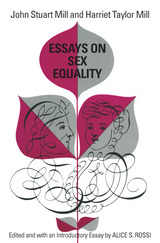
Also contained in this volume is a major interpretative essay by Alice S. Rossi on Mill and Harriet Taylor which describes and analyzes their long personal and intellectual relationship.
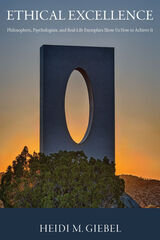
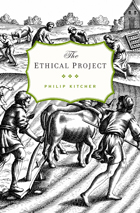
Principles of right and wrong guide the lives of almost all human beings, but we often see them as external to ourselves, outside our own control. In a revolutionary approach to the problems of moral philosophy, Philip Kitcher makes a provocative proposal: Instead of conceiving ethical commands as divine revelations or as the discoveries of brilliant thinkers, we should see our ethical practices as evolving over tens of thousands of years, as members of our species have worked out how to live together and prosper. Elaborating this radical new vision, Kitcher shows how the limited altruistic tendencies of our ancestors enabled a fragile social life, how our forebears learned to regulate their interactions with one another, and how human societies eventually grew into forms of previously unimaginable complexity. The most successful of the many millennia-old experiments in how to live, he contends, survive in our values today.
Drawing on natural science, social science, and philosophy to develop an approach he calls "pragmatic naturalism," Kitcher reveals the power of an evolving ethics built around a few core principles-including justice and cooperation-but leaving room for a diversity of communities and modes of self-expression. Ethics emerges as a beautifully human phenomenon-permanently unfinished, collectively refined and distorted generation by generation. Our human values, Kitcher shows, can be understood not as a final system but as a project-the ethical project-in which our species has engaged for most of its history, and which has been central to who we are.
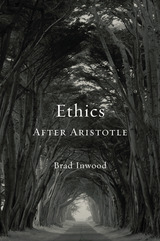
From the earliest times, philosophers and others have thought deeply about ethical questions. But it was Aristotle who founded ethics as a discipline with clear principles and well-defined boundaries. Ethics After Aristotle focuses on the reception of Aristotelian ethical thought in the Hellenistic and Roman worlds, underscoring the thinker’s enduring influence on the philosophers who followed in his footsteps from 300 BCE to 200 CE.
Beginning with Aristotle’s student and collaborator Theophrastus, Brad Inwood traces the development of Aristotelian ethics up to the third-century Athenian philosopher Alexander of Aphrodisias. He shows that there was no monolithic tradition in the school, but a rich variety of moral theory. The philosophers of the Peripatetic school produced surprisingly varied theories in dialogue with other philosophical traditions, generating rich insight into human virtue and happiness. What unifies the different strands of thought—what makes them distinctively Aristotelian—is a form of ethical naturalism: that our knowledge of the good and virtuous life depends first on understanding our place in the natural world, and second on the exercise of our natural dispositions in distinctively human activities. What is now referred to as “virtue ethics,” Inwood argues, is a less important part of Aristotle’s legacy than the naturalistic approach Aristotle articulated and his philosophical descendants developed further.
Offering a wide range of ways of thinking about ethics from an ancient perspective, Ethics After Aristotle is a penetrating study of how philosophy evolves in the wake of an unusually powerful and original thinker.
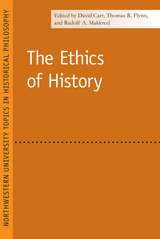
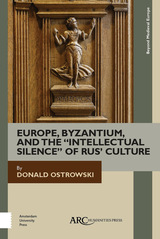
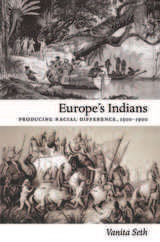

The fundamental tetralogy on Socrates’ final days.
Plato of Athens, who laid the foundations of the Western philosophical tradition and in range and depth ranks among its greatest practitioners, was born to a prosperous and politically active family circa 427 BC. In early life an admirer of Socrates, Plato later founded the first institution of higher learning in the West, the Academy, among whose many notable alumni was Aristotle. Traditionally ascribed to Plato are thirty-five dialogues developing Socrates’ dialectic method and composed with great stylistic virtuosity, together with the Apology and thirteen letters.
The four works in this volume recount the circumstances of Socrates’ trial and execution in 399 BC. In Euthyphro, set in the weeks before the trial, Socrates and Euthyphro attempt to define holiness. In Apology, Socrates answers his accusers at trial and unapologetically defends his philosophical career. In Crito, a discussion of justice and injustice explains Socrates’ refusal of Crito’s offer to finance his escape from prison. And in Phaedo, Socrates discusses the concept of an afterlife and offers arguments for the immortality of the soul. This edition, which replaces the original Loeb edition by Harold North Fowler, offers text, translation, and annotation that are fully current with modern scholarship.

Plato, the great philosopher of Athens, was born in 427 BCE. In early manhood an admirer of Socrates, he later founded the famous school of philosophy in the grove Academus. Much else recorded of his life is uncertain; that he left Athens for a time after Socrates' execution is probable; that later he went to Cyrene, Egypt, and Sicily is possible; that he was wealthy is likely; that he was critical of 'advanced' democracy is obvious. He lived to be 80 years old. Linguistic tests including those of computer science still try to establish the order of his extant philosophical dialogues, written in splendid prose and revealing Socrates' mind fused with Plato's thought.
In Laches, Charmides, and Lysis, Socrates and others discuss separate ethical conceptions. Protagoras, Ion, and Meno discuss whether righteousness can be taught. In Gorgias, Socrates is estranged from his city's thought, and his fate is impending. The Apology (not a dialogue), Crito, Euthyphro, and the unforgettable Phaedo relate the trial and death of Socrates and propound the immortality of the soul. In the famous Symposium and Phaedrus, written when Socrates was still alive, we find the origin and meaning of love. Cratylus discusses the nature of language. The great masterpiece in ten books, the Republic, concerns righteousness (and involves education, equality of the sexes, the structure of society, and abolition of slavery). Of the six so-called dialectical dialogues Euthydemus deals with philosophy; metaphysical Parmenides is about general concepts and absolute being; Theaetetus reasons about the theory of knowledge. Of its sequels, Sophist deals with not-being; Politicus with good and bad statesmanship and governments; Philebus with what is good. The Timaeus seeks the origin of the visible universe out of abstract geometrical elements. The unfinished Critias treats of lost Atlantis. Unfinished also is Plato's last work of the twelve books of Laws (Socrates is absent from it), a critical discussion of principles of law which Plato thought the Greeks might accept.
The Loeb Classical Library edition of Plato is in twelve volumes.
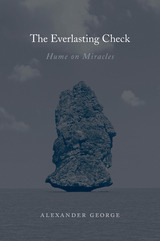
A touchstone of the Enlightenment dispute between rationality and religious belief, David Hume’s essay “Of Miracles” has elicited much commentary from proponents and critics ever since it was published over 250 years ago. Alexander George’s lucid and sustained interpretation of Hume’s essay provides fresh insights into this provocative, occasionally elusive, and always subtle text. The Everlasting Check will be read with interest by both students new to Hume and seasoned scholars.
George does justice to the letter and spirit of Hume’s essay, explaining the concepts and claims involved, making intelligible the essay’s structure, and clarifying remarks that have long puzzled readers. Properly interpreted, the essay’s central philosophical argument proves to be much hardier than Hume’s detractors suggest. George considers a range of objections to Hume—some recent, some perennial—and shows why most fail, either because they are based on misinterpretations or because the larger body of Hume’s philosophy answers them.
Beyond an analysis and defense of Hume’s essay, George also offers a critique of his own, appealing to Ludwig Wittgenstein’s thoughts on magic and ritual to demonstrate that Hume misconstrues the character of religious belief and its relationship to evidence and confirmation. Raising a host of important questions about the connection between religious and empirically verified beliefs, George discusses why Hume’s master argument can fail to engage with committed religious thought and why philosophical argumentation in general often proves ineffective in shaking people’s deeply held beliefs.
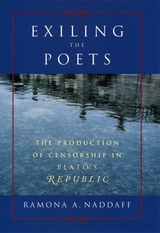
Censorship, Nadaff argues, is not merely a mechanism of silencing but also provokes new ways of speaking about controversial and crucial cultural and artistic events. It functions philosophically in the Republic to subvert Plato's most crucial arguments about politics, epistemology, metaphysics, and ethics. Naddaff develops this stunning argument through an extraordinary reading of Plato's work. In books 2 and 3, the first censorship of poetry, she finds that Plato constitutes the poet as a rival with whom the philosopher must vie agonistically. In other words, philosophy does not replace poetry, as most commentators have suggested; rather, the philosopher becomes a worthy and ultimately victorious poetic competitor. In book 10's second censorship, Plato exiles the poets as a mode of self-subversion, rethinking and revising his theory of mimesis, of the immortality of the soul, and, most important, the first censorship of poetry. Finally, in a subtle and sophisticated analysis of the myth of Er, Naddaff explains how Plato himself censors his own censorships of poetry, thus producing the unexpected result of a poetically animated and open-ended dialectical philosophy.
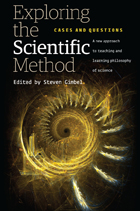
From their grade school classrooms forward, students of science are encouraged to memorize and adhere to the “scientific method”—a model of inquiry consisting of five to seven neatly laid-out steps, often in the form of a flowchart. But walk into the office of a theoretical physicist or the laboratory of a biochemist and ask “Which step are you on?” and you will likely receive a blank stare. This is not how science works. But science does work, and here award-winning teacher and scholar Steven Gimbel provides students the tools to answer for themselves this question: What actually is the scientific method?
Exploring the Scientific Method pairs classic and contemporary readings in the philosophy of science with milestones in scientific discovery to illustrate the foundational issues underlying scientific methodology. Students are asked to select one of nine possible fields—astronomy, physics, chemistry, genetics, evolutionary biology, psychology, sociology, economics, or geology—and through carefully crafted case studies trace its historical progression, all while evaluating whether scientific practice in each case reflects the methodological claims of the philosophers. This approach allows students to see the philosophy of science in action and to determine for themselves what scientists do and how they ought to do it.
Exploring the Scientific Method will be a welcome resource to introductory science courses and all courses in the history and philosophy of science.
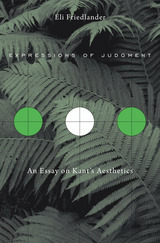
The Critique of Judgment—the third and final work in Kant’s critical system—laid the groundwork of modern aesthetics when it appeared in 1790. Eli Friedlander’s reappraisal of this seminal accomplishment reformulates and elucidates Kant’s thought in order to reveal the inner unity of the Third Critique.
Expressions of Judgment emphasizes the internal connection of judgment and meaning in Kant’s aesthetics, showing how the pleasure in judging is intimately related to our capacity to draw meaning from our encounter with beauty. Although the meaningfulness of aesthetic judgment is most evident in the response to art, the appreciation of nature’s beauty has an equal share in the significant experience of our world. Friedlander’s attention to fundamental dualities underlying the Third Critique—such as that of art and nature—underscores how its themes are subordinated systematically to the central task Kant sets himself: that of devising a philosophical blueprint for the mediation between the realms of nature and freedom.
This understanding of the mediating function of judgment guides Friedlander in articulating the dimensions of the field of the aesthetic that opens between art and nature, the subject and the object, knowledge and the will, as well as between the individual and the communal. Expressions of Judgment illuminates the distinctness as well as the continuity of this important late phase in Kant’s critical enterprise, providing insights for experienced scholars as well as new students of philosophy.
READERS
Browse our collection.
PUBLISHERS
See BiblioVault's publisher services.
STUDENT SERVICES
Files for college accessibility offices.
UChicago Accessibility Resources
home | accessibility | search | about | contact us
BiblioVault ® 2001 - 2024
The University of Chicago Press









